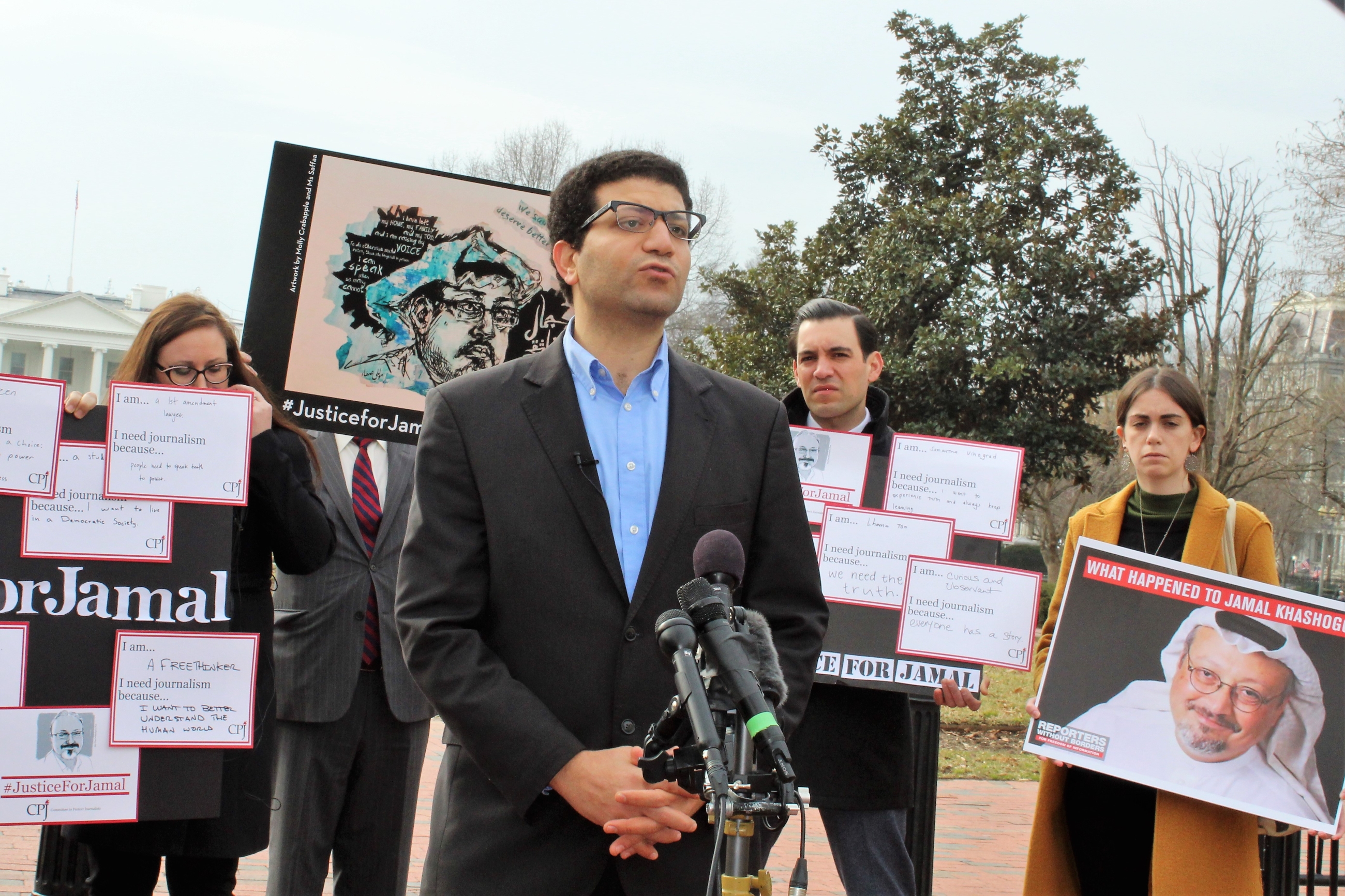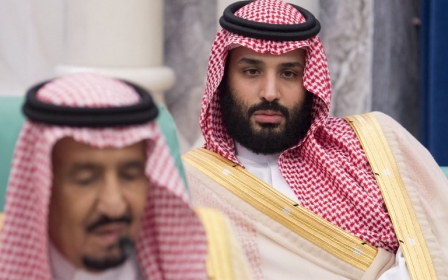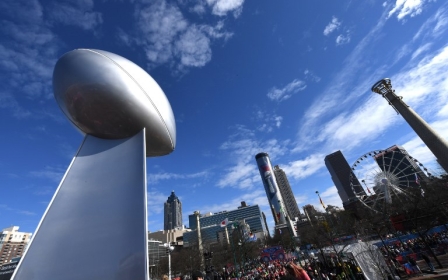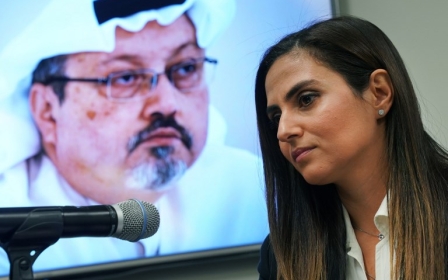Outrage persists months after Khashoggi's brutal murder

Less than 24 hours before Donald Trump's administration must submit a report on the murder of Jamal Khashoggi, advocates gathered in front of the White House to demand justice for the slain Saudi journalist.
The activists, including members of several press freedom organisations, vowed to push forward in their quest for accountability - even if the US president does not act to punish Khashoggi's killers.
"Given the international importance of this case and its implications for press freedom, the need for answers far outweighs any justification for secrecy," Courtney Radsch, advocacy director at the Committee to Protect Journalists (CPJ), told a small crowd of activists and reporters on Thursday.
US lawmakers invoked the Magnitsky Act four months ago, shortly after Khashoggi's killing at the Saudi consulate in Istanbul, requiring Trump to decide whether to impose sanctions on individuals involved in the assassination.
The White House, which has so far stood by its Saudi allies, must inform Congress of its findings on Friday.
Radsch called for transparency from the Trump administration.
She noted that the CIA had concluded with high confidence that Saudi Crown Prince Mohammed bin Salman ordered the assassination, but the details of the intelligence agency's probe were never made public.
She also called for the United Nations to launch a formal criminal investigation that goes beyond an inquiry led by UN expert Agnes Callamard, who concluded on Thursday that the murder was "planned and perpetrated" by Saudi officials.
The Magnitsky Act
Khashoggi, a Washington Post columnist who was critical of bin Salman, was murdered by Saudi government agents after he visited his country's consulate in Istanbul on 2 October to retrieve personal paperwork.
Saudi officials initially insisted that Khashoggi left the building unharmed, but acknowledged weeks later that the journalist was killed.
Still, Riyadh has consistently maintained that bin Salman was not involved in the murder - an assertion that has been met with scepticism from political analysts, intelligence officials, journalists and US lawmakers, who say such an operation could not have been authorised without his approval.
Late last year, all 100 US senators backed a motion stating that the legislative chamber "believes Crown Prince Mohammed bin Salman is responsible for the murder of Jamal Khashoggi".
Trump has reiterated the Saudi denials and countered the CIA's assessment, refusing to denounce bin Salman, also known as MBS, for the murder.
The US imposed sanctions on 17 Saudi officials, including a senior aide of MBS, last year, but activists and lawmakers said that does not go far enough.
The Magnitsky Act gives the president the authority to impose financial sanctions and travel restrictions on human rights abusers.
While the White House is not required to impose such measures, a report pointing the finger at MBS in the Khashoggi case would make it more difficult for Trump to protect him.
'People will not move forward'
Sherif Mansour, Middle East and North Africa programme coordinator at CPJ, said Khashoggi's murder in a normally safe setting - a consulate - shocked people around the world.
"We wanted to say today that this outrage is still real, still exists, and it's not going to move away," Mansour told MEE after the news conference. "People will not move forward without a full account and full accountability [for] what happened in this case."
If the White House does not respond to the call for justice for Khashoggi, Mansour said advocates will continue to seek accountability elsewhere, including in Congress, the European Union and the UN.
'If someone as prominent as Jamal Khashoggi is killed and nothing happens, what does that say for other people that are seeking justice?'
-Ahmed Bedier, activist
Ahmed Bedier, a Muslim-American activist who founded the Justice for Jamal Campaign, said the circumstances and perpetrators of the journalist's murder are known.
"The mystery since his death is why the White House is helping Saudi Arabia cover up one of the biggest murders in this past year," Bedier said in a brief speech.
He added that letting the crime go unpunished sends a "chilling effect" to victims of tyranny in the Middle East.
"If someone as prominent as Jamal Khashoggi is killed and nothing happens, what does that say for other people that are seeking justice?"
Speaking to MEE, Bedier said MBS has been, and will forever be, tainted by the Khashoggi murder.
"I think people within Saudi Arabia realise that he's not going to be an effective leader. With all the grand projects that he's trying to do, there's just going to be a dark cloud that hangs over him as long as he's around," he said.
He added that MBS lacks legitimacy not only among Saudi citizens but also with members of his own royal family.
"His position may not be guaranteed, and if it is, he may just be isolated. There are already members of Congress on record saying: 'We're not going to deal with Mohammed bin Salman.'"
Middle East Eye propose une couverture et une analyse indépendantes et incomparables du Moyen-Orient, de l’Afrique du Nord et d’autres régions du monde. Pour en savoir plus sur la reprise de ce contenu et les frais qui s’appliquent, veuillez remplir ce formulaire [en anglais]. Pour en savoir plus sur MEE, cliquez ici [en anglais].




